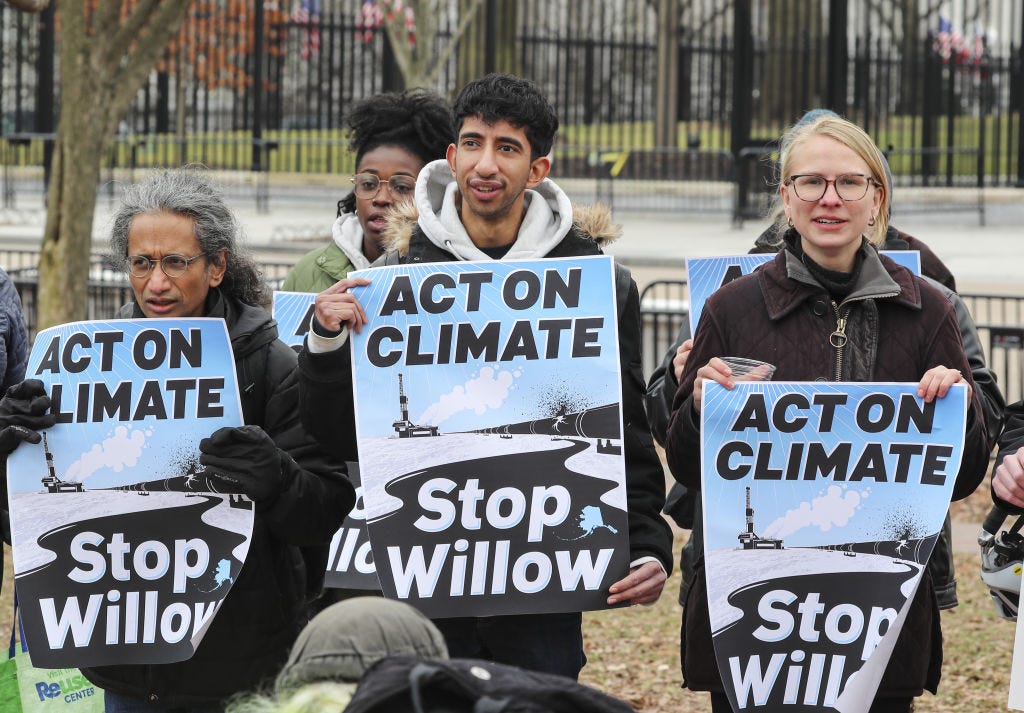Willow is not just an “environmentalist” concern
HEATED analyzed 30 national news stories about the Willow project and found that 75 percent framed its importance as primarily political.

The Biden administration on Monday announced that it is approving the largest-ever proposed oil drilling project on U.S. public lands, in a direct repudiation of research warning that new fossil fuel developme…



